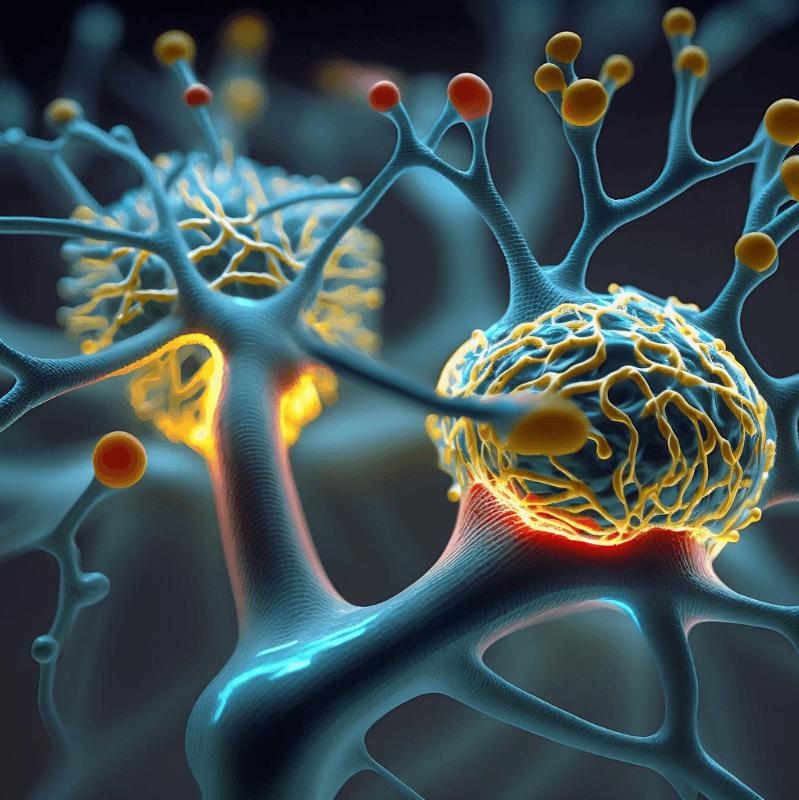Transcortical Motor Aphasia
Your halting and laborious speech brought by transcortical motor aphasia now has a light of hope.
Transcortical Motor Aphasia
In a condition described as transcortical motor aphasia (TMA), trauma to the frontal region of the brain hinders communication. People suffering from TMA, however, retain the ability to comprehend both written and spoken languages, unlike individuals who experience different types of aphasia. TMA patients may have difficulty expressing themselves, often not succeeding to find the correct words. They are likely able to speak individual phrases, but they might not be able to weave them together in a cohesive statement.

Visible Signs

Frequent Hesitation & Pauses

Problem Finding Words

Speaks With No Prepositions

Difficulty Writing
LIFE Speech Pathology
We tailor treatment, recovery, and care based on your needs.
Possible Origin & Cause

Stroke
Traumatic Brain
Injury
Brain Tumor
Progressive Neurological Condition
Transcortical Motor Aphasia Treatment
Speech-Language Pathologist
Like other types of aphasia, transcortical motor aphasia is a medical condition that requires evaluation and treatment by a speech-language pathologist. This health care provider helps patients recover from TMA by introducing speech therapies that aim to empower neuroplasticity.
Neuroplasticity is known as the innate power of the brain to build pathways allowing the undamaged portion to take control over areas previously controlled by the damaged ones. The center of this area originally manages the language skills of patients.


Repetition Exercises
As said above, transcortical motor aphasia patients are in need of speech-pathologists whose therapies lead to rebuilding the neuroplasticity in the brain. A proven method of achieving this end is through repetition exercises. Speech-pathologists that control these therapies will ask patients to repeat a thought or words.
This stimulation supports the brain’s ability to form new pathways, which can ease the effortful, halting speech seen in transcortical motor aphasia. In many cases, recovery depends on this process of neuroplasticity, showing how the brain heals and adapts over time.
Motor Aphasia Rehabilitation
Over the years, experts in treating aphasia have formulated specific rehabilitation methods for transcortical motor aphasia. One of them is the Promoting Aphasics’ Communicative Effectiveness (PACE) therapy, where patients are exposed to conversation-like simulation where they will be both a listener and speaker.
Another form is called Constraint-Induced Language Therapy (CILT), where patients will undergo conversation techniques in which they will not be allowed to use gestures and only speak their thoughts. Daily practice of this exercise will rebuild the speaking ability of the patients.


Partner With LIFE Speech Pathology
Transcortical motor aphasia has been long considered as a rare type of aphasia, this means that confusion with other forms can be a result of lack of evaluation. Here at LIFE Speech Pathology®, we commit to evaluating closely the condition of the patient, leading us to formulate or adapt speech therapies that will help their recovery.
Our team works in tailoring the speech therapy that will work on the condition of the client, targeting the fastest yet most efficient route towards healing. Visit us today if you experience the symptoms of transcortical motor aphasia.
START REBUILDING HERE
RESOURCES & SUPPORT
TYPES OF APHASIA
Non-Fluent Aphasias
Fluent Aphasias
MORE THAN APHASIA
Recovery doesn’t stop. Communication. Connection. Life.
© 2026 LIFE Speech Pathology, All Rights Reserved






